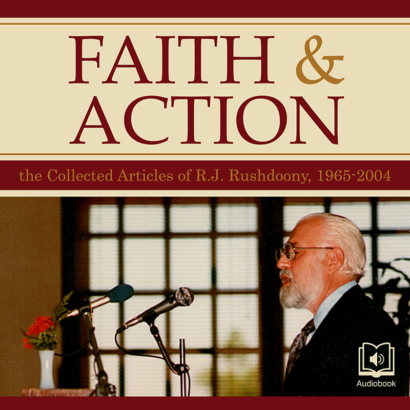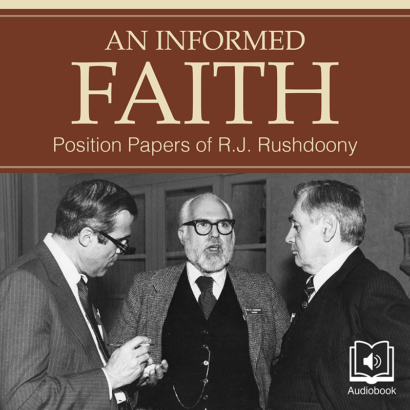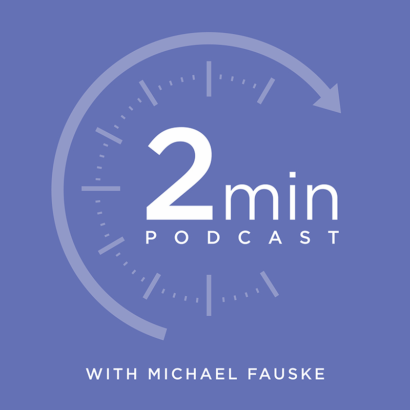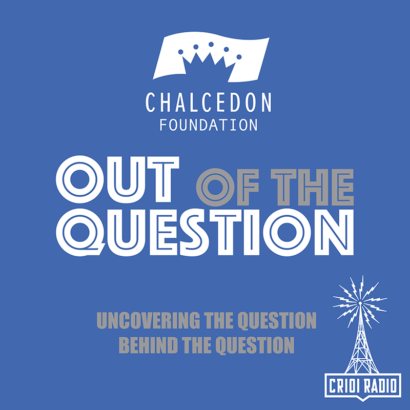
Setting Up and Removing Kings
• Mar, 12 2024
Daniel 2, Sermons in Zephaniah, Haggai, and Zachariah (RJ Rushdoony), The Boniface Option: A Strategy for Christian Counter-Offensive in a Post-Christian Nation (Andrew Isker), Wars and End of the World Predictions, Atomic Bomb Testing on the US Navy, UFOs, Pyramids, and Ancient Advanced Technology, Indigenous People’s Day, Dave Ramsey - “The Myth of Good Debt”, Christians desiring to raise rebels against tyrants, The Uncontacted Peoples of the World, Media: “Land of Confusion” - Genesis
Hosted by
Husband, Father, Pastor, Teacher, Podcaster, and Christian Education Advocate
- Series: The Last Kingdom
- Topics:
Jeremy Walker (00:21):
And welcome back to The Last Kingdom. I'm your host, Jeremy Walker. It is now episode two and the date is October 23rd, 2023. You are now back with us here on The Last Kingdom and we have a topic for you. It's entitled, this episode is Setting Up and Removing Kings. On this episode, we're going to be discussing Daniel 2 and the hope that the Christians have of God's governance of this world a positive message and not one of negativity, just toss that right out the door. We have a couple book reviews here for you and many, many topics we're going to talk about. And by the end we have one other subject I wanted to discuss a little bit of media. Loki Season 1, we're going to be discussing a little bit about that and how that ties into Christianity and themes in media. So I want to be the first to welcome you back on episode two of The Last Kingdom.
(01:23):
Now, let's go ahead and jump right into this. A lot of times we like to talk and we think that our talk does a lot, but in this case, when we're going to be discussing very biblical topics in this one, Setting Up and Removing Kings, people are just too negative. They're very negative, especially Christians. They're so negative about everything. They so worry about everything and it's mostly because they suffer from poor theology. That's right, poor theology. Here in The Last Kingdom. However, we want to give good theology and I absolutely believe that good theology makes us Christians not pessimistic, but optimistic and not just optimistic, but understanding the victory that Christ has already gained and we're part of and we can participate in. Daniel 2 is one of the best places in the Bible if you want to see just how utterly God controls things and decrees things.
(02:23):
Let me set this up for you because this first section here, before we get into other topics to discuss and especially I want to get into a very interesting series, the Marvel series, Loki Season 1, and I watched that recently. My children had watched it and they urged me to, they said it was one of the best series that was out there, and there's been a lot of really crappy stuff lately, just terrible, terrible stuff that's been out for Marvel. They've really fell off the bandwagon ever since Stan Lee has died and most of their stuff is just DRL and not worth watching whatsoever. However, Loki season one not only was very entertaining, but it had a very interesting message to it, which I want to touch on here at the end of this episode. But I want to jump into Daniel chapter two.
(03:10):
We have now, if we want to set the stage, Israel has been taken into captivity by King Nebuchadnezzar into Babylon and Daniel, Shadrach, Meshach, and Abednego. You know the famous story, maybe if not, it's found in the book of Daniel in the Old Testament and in Daniel chapter two, we have moved on where he has been selected, his friends have been selected. They now have not only entered into King Nebuchadnezzar's school but have now been appointed official positions in the government. Now, when we enter chapter two, King Nebuchadnezzar has a dream, but he doesn't quite remember the dream, so he commands all of his soothsayers and all the rest to tell him the dream and why it was so important. Well, they couldn't do that. So King Nebuchadnezzar says, you're all a bunch of frauds. I'm going to put all of you to death. That was going to include Daniel, Shadrach Meshach and Abednego.
(04:04):
Well, if we jump all the way to verse 20, Daniel has gone and been told that he was going to be put to death. He'd asked for a little bit of time. He went to his friends, they said, we're going to go seek God's help. And by the time you get to verse 20, Daniel has been given the revelation from God what the dream is, and not only that, but the meaning. So verse 20, it says this, and this is Daniel's gratitude and thankfulness to God answering his prayer.
(04:32):
He could have been silent. He did not have to answer that nor did he have to help if it wasn't part of God's plan. But in this case it definitely was. And here in verse 20 following says, Daniel answered and said, blessed be the name of God forever and ever for wisdom and might are his. And he changed the times and the seasons. He removed kings and seteth up kings. He giveth wisdom unto the wise and knowledge to them that know understanding. He revealeth the deep and secret things. He knoweth what is in the darkness and the light dwelleth with him. I think thee and praise thee, oh thou God of my fathers who has given me wisdom and might and has made known unto me, now we desired of thee for thou has now made known unto us the Kings matter.
(05:27):
Daniel then takes this information, goes to the guard, gets brought to the king, and of course he then tells him, you don't have to kill anybody, we can help. Jumping now to of course verse 27, Daniel answered in the presence of the king and said, the secret which the king have demanded cannot the men, the astrologers, the magicians, the soothsayers show unto the king? But there is a God in heaven that revealeth secrets and maketh known to the king, Nebuchadnezzar, what shall be done in the latter days. Thy dream and the visions of thy head upon thy bed are these. And then Daniel proceeds to then tell him about the dream that he saw a giant statue, the shape of a man who had the head of gold, arms of silver and a belly of brass, legs of iron, and then of course feet that were clay and iron.
(06:25):
Well, basically it came down to this was his dream. He then sees in the dream not only this figured man that was made from different materials, but then a rock which was not hewn out by a man falls on the feet and shatters it and everything from the bottom to the top shatters and falls apart completely. Nothing is left. It's like the chaff. The Bible says that the wind drives away, there is nothing left whatsoever, and we're going to go ahead and jump down to verse 44. After he delivers what the statue looks like, he then gives the interpretation to King Nebuchadnezzar, and this is important to us. This is for every Christian out there that we are being given told what's going to happen in the latter days. If you are somewhat familiar with Christianity and churches, especially the modern churches, I was raised in the Southern Baptist churches, people would spend their entire lives, these traveling type missionary guys who would then talk about end times endlessly.
(07:32):
They'd have big giant posters and banners up in town square. Come to our church today and learn about the mysteries of the book of Revelation. Well, it's not a mystery. God tells you what's going to happen in the latter days. Man just isn't comfortable with the limitations that God's revelation gives to him and he wants more. But let's go ahead and jump back into verse 44 through 49, and Daniel finishes this up, gives the meaning about the statue, about the rock, about being crushed. Here we go, verse 44, quote, In the days of these kings, shall the God of heaven set up a kingdom which shall never be destroyed and the kingdom shall not be left to other people, but it shall break in pieces and consume all of these kingdoms and it shall stand forever. So each layer, each layer there of the statue was a different kingdom of men from one king to the next king to the next king. Verse 45.
(08:32):
For as much as thou saw us that the stone was cut out of the mountain without hands and it break in pieces, the iron, the brass, the clay, the silver and the gold, the great God hath made known to the king what shall come to pass hereafter and the dream is certain and the interpretation thereof, sure. Verse 46, then the King Nebuchadnezzar fell in his face and worshiped and commanded that they should offer an ablation and sweet odors unto him. The king answered him to Daniel and said, oh a truth, it is that your God is a God of gods and the Lord of kings and a revealer of secrets, seeing thou could has reveal the secret. Then the king made Daniel a great man and gave him many great gifts and made him ruler over the whole province of Babylon and chief of the governor's over all the wise men of Babylon.
(09:24):
Then Daniel requested of the king and he set Shadrach, Meshach and Abednego over the affairs of the province of Babylon, but Daniel sat in the gate of the king. Now this is an important thing and this is why I wanted to discuss it and why start this episode with that, a positive message that Daniel was revealed. King Nebuchadnezzar was revealed. It is God not man, that sets up kings and he also takes them down. He has a plan that includes all the kingdoms of men at this time from the king of Babylon, King Nebuchadnezzar, all the way down until Christ came, the kingdoms of men would come and they would go, but the kingdom of God, whenever Christ's kingdom was going to be set up when he was there, it crushed the final kingdom in this dream and then it began to grow. It became a mountain and then it grew and covered the entire earth.
(10:22):
That is where we live in right now, fellow Christians. We don't have to worry about the future. It's already set. There's already a plan in place and you can stop worrying, stop running to every charlatan out there that wants to teach you about the book of Revelation. Stop running after every person who just wants to teach you more secret things about the world, how this is going to happen and when this is going to happen and when this is going to happen. You can sit contented as Daniel did, Shadrach, Meshach and Abednego did. They're living in a foreign land under judgment from God. King Nebuchadnezzar was not a good king by far. He was a brutal king, but there they were as servants in his court elevated above everyone else and they continue to serve him. All this will tie in as we go through some of the other subjects we want to discuss, but this is a very positive thing for us.
(11:24):
Christians do not have to worry about what's taking place in governments, around the world, or in the White House. God has it squarely and firmly under control and the Bible continues to echo this again and again and again and I cannot stress it enough. Stop worrying about trying to change the world through politics and get a different leader in the White House or into this country or into that country or what if they pass these laws and what if they pass those laws? Well, it doesn't mean that we don't work to try to help reform and change the world, but we don't live as if it's out of control and that's probably for me the biggest problem that people have and that's one of the reasons why I wanted to do this type of podcast because we need to stop being negative. When you're negative, it means you're unproductive and you lack faith.
(12:14):
Be a person of faith and that means a person of confidence in the God who is revealed to you, that he not only is in control and has a plan, but he is going to absolutely succeed and you can play a part in that, but you're not going to do that with a pessimistic attitude. That's not going to happen. So take off that frown, put on a smile. Get up tomorrow knowing that God has everything under control and nothing and no one can touch you unless God allows it. So get busy doing good works, grow your family, and above all else have faith in God's plan. I want to move on then to some book reviews I want to move on to. I have two books I have read since the last podcast episode we did and the first is by RJ Rushdoony, which you will hear me mention quite a bit on this podcast.
(13:12):
It's one of the new books that has been published after his death that he had worked on is called Sermons and Zephaniah, Haggai and Zechariah. It's my personal opinion, but I think as Rushdoony got older, his books kept getting better as if he knew exactly what he wanted to say and who he wanted to say it to. This book in particular goes along with my topic about Daniel in chapter two and how God has a plan for the world because in that book, Zephaniah, Haggai and Zechariah, he goes through and explains this subject in particular from these minor prophet books of how God is in control of all things, including horrible, evil governments that are out there, and they are still his tools. That's right, they're not out of control doing things that are not part of a plan. They are squarely under control.
(14:06):
No one can do anything outside of God's decree and his permission and his plan, he brings it all to pass. It's a wonderful little book which I suggest you pick up. It also talks about Christians, Christians who are unfaithful thinking that they are going to decide how they're going to worship God, how God should be pleased with what they act like and does a wonderful job of saying not only is God the God of the nations and not only does he raise them up and set them down, but he does that to his people too and he does it to us first. This book I thought was a wonderful warning and a wake-up call to Christians, to Christian character, to Christian governance, governance of yourself, governance of your family, your community, your business under God or else. It's a wonderful little book which I highly recommend.
(15:06):
You can pick it up from Amazon. It's in both paperback, I believe and also in digital format from Amazon. You can also get it from caledon@caledon.edu as well. The second book that I read, which was interesting, it was called The Boniface Option, A Strategy for Christian Counteroffensive in Post-Christian, well, in a Post-Christian Nation by a writer by the name of Andrew Isker, and he's written a couple other books as well. I think that Andrew does a great job in this book, it's a great little book, to explain the problems that are out there and that there needs to be a solution. Christians need to work in this world. We don't try to run from the world, so he really gets that right. He definitely gets the idea that Christians need to start with themselves and need to fix that problem first, that they need to start working on their families and their communities as well.
(15:59):
I think that he has a lot left to learn about how we can do that and so his advocations for a few things, I wouldn't necessarily agree with all of his conclusions, but the idea that he is pointing out that there is a problem and it starts with you, the individual, and it's something that you need to work on a hundred percent. You can't go, it's out there. Somebody else needs to do something. The world is in a terrible place, terrible things are happening and somebody needs to do something about this. Yeah, look in the mirror, it's you, so it's a neat little book there, wasn't a long read. It was a good read, good writer. You can pick it up from Amazon and paperback or digital as well. So here on the Last Kingdom, I want to talk about some world events and how Christians, how we should react to these things because that's kind of the point also this podcast because we live in this world and as long as you're here, you're going to impact it in one way or another.
(17:03):
We are in service if you're a Christian to Christ and you are going to be serving him in a capacity which is productive or counterproductive and one has reward and one does not. So there are ways of which we see things in the news and the media and then people sometimes just talk about them and sometimes they think there's certain ways for advocation, for action, reconstruction, if you will. So I have 10 different things here which I want to go through. I won't necessarily be going through each one of these completely in depthly, but things that I thought were interesting that I think I wanted to discuss. The first thing I want to talk about were, especially now that we had the war in Ukraine, we had Russia and Ukraine and that was everywhere on the news and everybody had to put little stickers everywhere and change their social media icons and they had to say that we were standing with Ukraine, this idea, and then of course America gave billions and billions and billions and billions of dollars away from its own country to help itself to another country far away.
(18:09):
It's probably one of the biggest embezzling operations ever to be done in public. However, the most recent war we're supposed to now be focusing on versus focusing on ourselves is of course there's now fighting in Israel versus Palestine, lots of fighting and all the rest. Here's one of the problems I have is that people feel like they have to pick sides with countries that are far from us based off of news reports, which we know that the news does not tell us the truth, so why is it you're getting all up in arms about these things? Why is that? Now the one interesting thing here in the United States you see is that all the rebels, of course are trying to side with what they think are rebels. These people don't even side with the same value sets that they have here in the United States, and if they had the opportunity, the Palestinians would kill all the liberals who are trying to support them.
(18:58):
That's kind of ironic if you stop and think about it for a second, but they do have one common spirit. They have mayhem, chaos, and that's what wars typically are. Without having to pick sides with whoever's on what side because I don't know, I have no idea if there's a right side or a bad side. I can obviously say you don't want people to kill each other. That's easy. You can obviously say you'd want them to take their weapons and pound them into plow shears as the Bible talks about, man coming to terms in peace with themselves, but that's not happening yet. But you don't have to get on the hobby horse and get all excited about things, but you do not know what you're talking about. You just don't. If you sit there and honestly look at yourself and go, I get all excited about these things and these things, I really know, you really don't.
(19:46):
You're a fool, so why get caught up about things you don't even know about? I don't think you should. Talking about things in general, you can definitely talk about biblical subjects, which you can find a basis for them, things that are true, things that you know, but we have enough problems and have you not seen the old movie called Wag the Dog where because of political problems in the United States, they then wanted to focus on something outside of it? Do you not think that people aren't masters of redirection and manipulation?
(20:17):
That's probably what's going on most of the time if you're watching the news and media. So just be mindful, don't get distracted and all the other things that other people are doing. Focus on yourself. Focus on your family, that will be productive. Talking endlessly on social media and otherwise about things that don't have anything to do with you that is unproductive conversations and speech, and most likely it's completely wrong because no matter what you think, unless you have boots on the ground in these places and have credible eyewitnesses or you're an eye witness yourself, you can't intelligently talk about any of these subjects.
(20:53):
So in my opinion, you shouldn't. Just move on to a better subject, a more important one, a more edifying one to those around you and even yourself and move on to another topic. I watched an interesting video on social media. It was about an atomic bomb test that they were doing on the US Navy years and years ago, and what they did is they took out these ships, these US navy ships and put them out into the ocean, detonated the bomb, and they had all the men come out onto the deck and they had to put their heads down. They told them not to look at it, and then they set off this bomb. Now, according to the men, they were doing this to see the effects of what would take place from this, and when you hear these men describe, and they were miles and miles of very far away from the actual detonation, but they said there was this wave that went through you.
(21:52):
It's just this unworldly heat that went through their bodies just from the beginning to the end, and there's no other way to describe it than that. They said that they could see the light with their hands and their eyelids closed and their hands up, but they still could not shut out the light or the heat of it all, and the explosion they said was just the most tremendously scary thing they've ever heard in their entire lives and scared them to death. And then of course they discussed not only their various experiences, which I've summed up here, but then how those people who were involved in that, all the health issues and problems that they were coming up with, how they were dying of cancers and so many other issues that came up with it and how they were angry that the United States Army had used them as Guinea pigs to see what would be the results of an atomic bomb blast.
(22:48):
Now, would the United States military do that? Would they test things on military soldiers just to see what would happen to them? Yeah, it's happened a lot in the United States history. I know of a few in particular. One is Agent Orange. It was one of the things, I believe it was in Vietnam where they would go out there and dump this stuff. It's a orange chemical and they would dump it to deforest the area so that they could go through the forest and jungles and kind of weed keel everything first, and they told them, you're going to be just fine. This doesn't hurt you. This is harmless. I remember hearing stories about the guys who had this stuff dumped on them on their boats or out when they were walking in the jungles, and then of course what happened afterwards, all the cancers and diseases, children born were missing limbs.
(23:37):
It was horrifying. What it should be teaching us is this is number one. If you are a pro-military person, I think it's a very good thing to be pro-military, but to be pro-military to the point of idol worship is a problem. To not be able to see its flaws is a problem, and there's nothing wrong with wanting to serve in a military, but to do so blindly to do so without seeing faults, I think is a major problem and I think it's an un-Christian thing to do. To not see faults. You have to be able to look at something and say, this was right and this was wrong, and what they did to these US navy men that were in the service by testing atomic bombs on them was deplorable. Just hearing them talk about it was like listening to somebody describe their most worst nightmare. It was truly intriguing.
(24:33):
Moving on to a third topic, this one was an interesting one to me because we most recently had the United States government and Mexican governments trying to say that we found aliens and they're pouring out what looks like a paper mache doll, but UFOs, pyramids and ancient type technologies, they have a problem because pyramids are found all around the world and they can't really explain them about why they're all over the world, the precision in which they're built. There's technologies they find according to them probably should not exist, and there's probably a good reason for that. They have the wrong mental ideas of what the world looks like. I'm also now currently reading one of uni's also new books on first and second Corinthians, and he goes into an interesting topic which I had never heard him discuss before, nor anyone else. Basically it comes down to this, to sum up with what he was talking about, that men can't intellectually accept things because they're morally and religiously compromised.
(25:36):
In other words, a person's moral and religious beliefs can compromise him intellectually. Now, this is not something that people want to discuss or believe, but whenever the Bible talks about how men can never come to the truth of God and believe it's because they're morally opposed to God. They're morally opposed to God's revealed truth about man, the world, his position of sin, his need for a savior, his need for repentance. This is one of the reasons why people can't understand the concept of what they call ancient advanced technologies or pyramids which were built where they still can't explain how they could do this. It's real simple. People weren't cavemen who crawled out of swamps, grew legs, became the cavemen who beat the women over the head and drug them around until eventually they turned into humans. That's not man's history, but see, mankind today is morally spiritually and religiously opposed to the idea that God is telling them the truth. That man was created by God, lived some of them for hundreds and hundreds of years up to 900 plus years the original men lived.
(26:55):
Could you imagine the advancements if you just took the men today and allowed them to live up to 900 years, these men at 90 are falling apart and dying. Imagine if they got 900 years of advancement, how much there could be. Now these guys, they cannot fathom that. Therefore, they have to invent an idea, which is an advanced technology, developed civilization outside of the world. We now know because we know that our world was evolved. Or maybe they say, well, maybe it was seeded by an advanced technology aliens with their UFOs. Instead of just saying that God created man with intelligence, with purpose, with ability. In the very beginning, the Book of Genesis, they were creating some of the most amazing things and why wouldn't they? They're living hundreds and hundreds of years. People were able to interact with each other on a level never thought of. Imagine if some of the greatest minds of the last couple centuries could have actually been working together. It would be amazing.
(28:06):
See, people are morally and religiously broken and therefore they are also intellectually broken. They can never reach their full potential as people until they of course are morally and religiously fixed. So that means that us as Christians, the redeemed, the saints, we are more capable of advancement than our counterparts who still sit in their broken state, both spiritually, morally, and also intellectually. When was the last time you heard somebody say that about us as Christians, we are superior in every way because we are first in line with God, then we're in line with ourself, then we can be in line with other men and so then we can move things forward. Now, if you're not seeing much advancement from Christians, it's probably because that formula is not being followed. Is it something to think about? Moving on. I found something interesting recently, which we apparently just had a holiday which I wasn't unaware of, called the indigenous People's Day.
(29:22):
Now, I was unaware of this or what it was, and so I looked up the term indigenous. What exactly does indigenous mean and indigenous just means to come from, to spring from, and so the idea behind it was that all around the world, there are places where people are from, right? People are from these areas as if they spring up from the ground and they're just bloomed there like flour seeds or something like that. See, the idea of this is ridiculous, see, as Christians we already know is that mankind started with one family in some part of the world. People can argue all day, it doesn't matter, but all of mankind really does come from one human family and all of the different variations of us, we're still just male and female, though there are lots of variations of us, and so we come from one family.
(30:19):
We came from a one starting point at some point wherever that specifically was. Even the Bible does not give us that type of revelation to that extent, but mankind did not just spring up from somewhere. He was created by God. The land doesn't belong to him, never did. He is a steward at best, a servant, somebody to tend the land that belongs to someone else. See, this was the problem though. See, when Christ came, they said, we will not have this man rule over us. And they even, Jesus did, told a parable about how a man had gone to a far country and sent his son to check on his land. And of course when the servants came they said, look, let's fall on him. Let's kill him and then this can be ours. And that's exactly what happened with Christ when Christ came, the rock that came to destroy all the kingdoms of mankind, which he did, and of course they thought in his moment of death that they were succeeding, where in fact that was when they were losing the most.
(31:26):
See, mankind wants to take what does not belong to him and seize it for his own. See, the people think that they're being clever by this Indigenous People's Day because they want to somehow say that there are what they call white men as colonizers. What they're really against is not people's skin color that they're attributing as white, but they're against one simple thing. They're against evangelism. That's right, evangelism. There is another point on my list here about an article talking about there are uncontacted people still left in the world. I don't have no reason to doubt this. It's probably true, but what's the importance behind it? Everybody who is competent said, leave them alone. Let them be them, because they're against evangelism. When Christianity marched across the globe, starting there in Jerusalem and spreading out into Africa, into China, into Asia, eventually going up into Europe and from Europe out to many other places through, yes colonization, when people traveled the globe and they brought Christianity and the message of the gospel, cultures were crushed all over the world.
(32:42):
So the concept of the indigenous people is not only ridiculous because people don't spring up from anywhere they're created. That's not the real problem. The real problem is they want to return to paganism. They want to return to times before the gospel message spread across the globe. This is the message that you should understand if you're a Christian, everything is a war. Man versus God, and you have to see it through all these things because they're not at war with skin colors, they're at war with a religious faith, and that's what they're at war with.
(33:22):
Okay, so I want to touch on a few more of these before we wrap up this episode of The Last Kingdom and I want to talk about debt. I was watching an episode or a podcast that had Dave Ramsey on it and he was discussing the myth of good debt. I think this is very important. I've run into so many people, especially what I would consider to be the simpleton foolish, brutish idiots out there who think that they are going to be the investment gods of the world, and so they believe that they can go into debt and use debt to make wealth and build wealth, and you're going to hear a lot of these type of snake oil salesmen sell this idea. The problem is this is un-Christian to the core, so God tells us that all debt makes us a slave to the lender.
(34:12):
It's right, he equates debt with slavery. The free man, God's man, is supposed to be the free man, not the indebted man. If you go through the biblical laws about debt, there was a cap of seven years. Now there's a whole lot of laws which made the entire society very different the years of Jubilee, so there was nobody that could have a debt that was longer than six years, and so their entire society was built around that. There are some people who hold to some pretty weird ideas. You have to hold that as your standard, but we don't live in a godly society and most of our income, probably 60% of our income is stolen via taxes. So the idea that you can live and never have any debt ever is ridiculous at this point in my personal opinion. However, there are only two types of debts I think that fall into a category that you have to go into that would excel six years.
(35:13):
One of those might potentially be a vehicle or a car, though I can't say as I know anybody in my personal circles, including myself, who've not been able to pay off a vehicle within six years, but I would say that's probably the higher cost, so I have a little caveat there for people. Then the bigger one is definitely going to be a home. If you're going to try to pay off a loan within six years, good luck. It's not going to happen and it just keeps getting worse with all the inflation in the housing market, and of course along with homes would be business loans because you can't start a business if you're going to try to pay it off in six years. It's just not going to happen. But the point is to be free of debt, to be free of debt, and to live a debt-free life. Credit cards are good, and Dave Ramsey is fantastic for warning about the dangers of irresponsible use of credit cards.
(36:08):
Now, I have credit cards myself. I use them. I use them responsibly like I would cash. I spend what I know I have and at the end of the month I pay them off, but most people don't have that type of discipline. They'll see it and they see free money. There's no such thing as free money and you're the chump that's going to pay for it. Debt is something that at all points in time, not only should you avoid it, if you do get into it because of a car or for a home, you should try your very best to get out of it as fast as humanly possible because God calls us to be freemen, freemen not slaves, and so if you want to be a godly Christian parent, then you need to show your children how to live and not be in debt.
(36:54):
You need to promote the idea of hard work. All Christian characters built into the 10 Commandments will build wealth, period. I've heard some people say, well, that's ridiculous because that's kind of a prosperity gospel. You know what? I'm tired of the stupidity. Are you saying that a person who works hard is not going to be promoted? Are you saying a person who's frugal isn't going to save money, so let's get beyond all that. We can easily say that when you obey God's commandments, wealth follows because he also tells you that you'll be made fat and if you're slothful, you're going to be made poor. A simple little saying goes, get rich slowly. Keep the commandments. I would add to that, stay out of debt.
(37:44):
Then of course, I think we'll just stop with one last thing because of time of how much you've discussed. The last one is this concept I've seen with Christians who want to raise rebels. If you'll notice, pay attention a little bit to things going out in the Christian world and what they're promoting and one of the words they will use, kind of a clue word, is the word rebels or rebels against tyrants. We want them to stand up. We don't want them to be sheep. Well, you do want them to have a firm faith. You want them to stand on their faith. You want them not to compromise, but to rebel? That is the wrong term to use to stand on your faith in front of God like Shadrach, Meshach and Abednego did and like Daniel did, is not to be a rebel. Now, at any point in time, could any of the characters in the Bible be considered rebels?
(38:39):
Now, the one time that people will try to use this kind of an idea is in the book of Joshua, and this was a different thing which I will not get into now, but it does not apply, not even a little bit does it apply. These guys were executioners, God's executioners to come in and wipe out Canaan, and this is a different subject entirely, but we are not supposed to raise rebels because it's God that put tyrants in control. This is the problem. They want to deny that. They want to deny that if there's an evil person who's in power, God did not place him there, or if he is evil and he is in power, he needs to be overthrown. He's somebody that we have to get out of office. It is God's judgment on us and we are supposed to throw it off.
(39:28):
Well, Daniel, Shadrach, Meshach and Abednego and all the Israelites had to sit for 70 years under tyranny because it was a judgment on them. They had to sit, they had to take it, and they had to wait. And when we, no matter where we live in the world, if we are under tyranny, we have to sit, we have to work, we have to wait. We are not rebels. Daniel, Shadrach, Meshach and Abednego did not serve the gods of Babylon and they were put in the highest positions of power. Another example, you had Joseph. Joseph did not serve the gods of Egypt and was put in the highest places of power, not because they were rebels, because they put their faith in God, they put their trust in him, and God's timing was everything. These people are not running the world on their own or without permission.
(40:29):
Every Christian needs to get that through their thick, thick, brutish skulls. God doesn't need you to change the world. He has it under control. You need to learn to live in that world successfully and we don't need rebels. We need people of faith and conviction because the same people that want to raise rebels are really just saying they want rebels because they don't control their little boys. They don't control them. They don't have any self-control at all. So many Christians who will excuse behavior from children because they're out of control. We just have to let them be boys. Boys can be boys and not be destructive. Boys can be boys without being disrespectful or refusing to listen to authority. See, you don't have to train a child to be a rebel. They're born rebels. You have to teach a child how to obey and when not to obey.
(41:33):
There's a giant difference. Daniel knew when not to obey. Shadrach, Meshach and Abednego knew when not to obey. David knew when not to obey and how they did it, but it wasn't revolutionary as if these rebels are going to take on the tyrants and put them out of office. You're stupid if you think that, you're ungodly, if you think that, and you have no faith in the God of Daniel Chapter two. Well, I want to end this episode with one last thing and it's all gets tied together. I promised and teased a little bit to Loki season one, I would touch on that and it is a good place to wrap up this episode. The whole thing is about the time variant agencies and whatnot. There's a sacred timeline. I'm not going to give away any plot points if you haven't watched it. I do encourage you to watch it.
(42:29):
It's quite fascinating at times, especially if you're a Marvel fan of any sorts, but there's a sacred timeline and then of course people's decisions cause branches, and so the whole idea and concept is that someone has been a decision maker, decision maker, IE, a God, and they have decided what the true timeline should be. This is how events should unfold from beginning to end. This is the sacred timeline, and it had all these time agents who would go out and would prune the timelines that did not coincide with the sacred timeline. In other words, there is no free will of any sorts. You had to follow the sacred timeline, so by the end, a couple of characters get to meet this, so-called would be God. Earlier on, one of the characters said, well, if for one person to be determining the timeline, then no one else can.
(43:35):
In other words, for one person to have free will, no one else can have it. That's a very interesting subject, isn't it? It sounds a lot like Christianity, doesn't it? It sounds like the people who made these types of stories understand that if God is a predestinating God, if he is raising up and setting down kings, as we read in Daniel chapter two, then he is the only one with free will. A couple of characters then as they're being listening to this subject matter, say, hold on a second here. I did all the things that I did. Those are my actions, and of course the would be God said, I laid the path. Yes, your actions were yours, and yet I laid the path for you to get where you're at.
(44:28):
See, the interesting thing about it is that man understands theology, God's revelation very well, better than probably 98% of Christians I've met in my life, non-Christians understand the concept of predestination and despise it, and they want to war against it. They also see the futility about it. There've been movie after movie after movie about this subject. There's been so many of them, even Bill and Ted's Excellent Adventure, 12 Monkeys, the Adjustment Bureau, just to name a few off the top of my head. Mankind understands what God has revealed about time, predestination, and his decrees.
(45:13):
The problem is that man understands that he's trapped and we'll just call it the sacred timeline. God's providential decrees, and yes, we make decisions, but we can't make decisions that are outside of the path that God has laid us, and the Bible backs these subjects up again and again. I don't have time to cite them all, but the fact that you can make determinations, but God gives you the direction and allows you to move down that way. Can you imagine for half a second, if Christians could regain sound theology, understand it, and let it then direct their lives, how they raise their children, how they train their children, how they interact with people around them, how they interact with people who are non-Christians?
(46:02):
I think it would be revolutionary. Imagine that, and so in a wrap up this episode of The Last Kingdom. Hopefully I've given everybody something to think about. Lots of different topics here. According to Daniel chapter two, God has everything under control, so take that into your life and this week into your family, promote godliness in yourself and others. Talk to you soon. God bless.
More podcasts in series

Does Good "Trump" Evil?
Nov 10, 2024

What Happened to All the Violence?
Oct 21, 2024

Building a Better World
Sep 28, 2024

The Evil of Hero Worship
Sep 21, 2024

Nebuchadnezzar's Proclamation
Sep 15, 2024

Johnny Cash's Middle Finger
Sep 07, 2024

2024 or 1984?
Aug 27, 2024

Train Up a Child
Jun 29, 2024

A Living Dog is Better than a Dead Lion
Jun 23, 2024

No Fate But What We Make
Jun 16, 2024

What is an Educated Child?
May 19, 2024

The Roses of Success
May 12, 2024

Breaking News
Apr 28, 2024

The Fallout and the Way Back
Apr 19, 2024

Up From Slavery
Apr 13, 2024

Community Standards
Apr 05, 2024

He Arose
Mar 29, 2024

I Have the Power to Crucify Thee
Mar 22, 2024

The Fear of the Wicked, It Shall Come Upon him
Mar 15, 2024

Love Thy Neighbor, and Hate Thine Enemy
Mar 12, 2024

We Fight Not Against Flesh and Blood
Mar 12, 2024

I Will Fear no Evil
Mar 12, 2024

We are Blessed, You and I
Mar 12, 2024

You Reap What You Sow
Mar 12, 2024

A New Heaven & A New Earth
Mar 12, 2024









